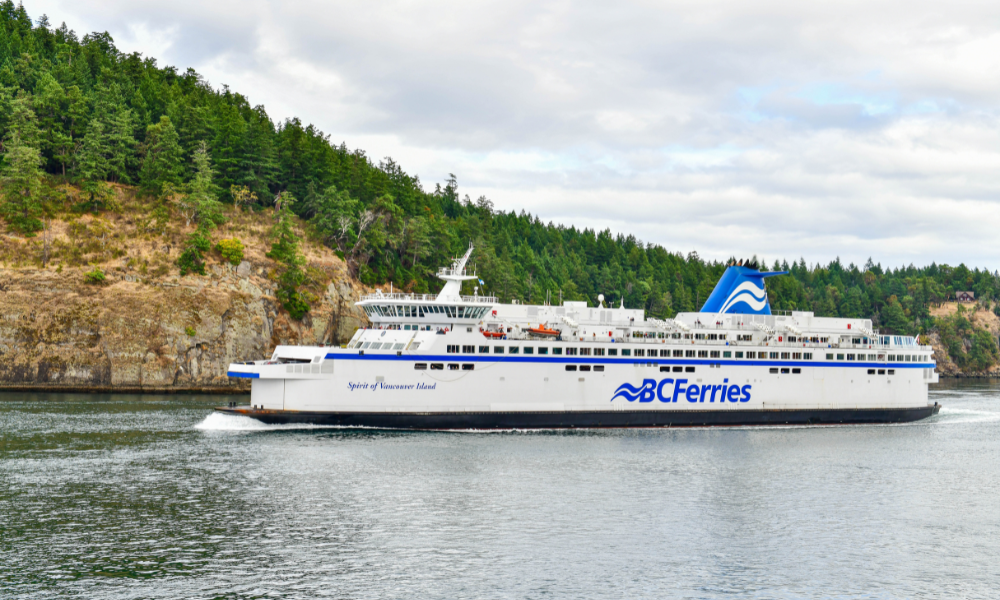Corporate negligence and regulatory failure was the root causes of the July Quebec train derailment and explosion, according to a study released by the Canadian Centre for Policy Alternatives (CCPA).
Evidence to date suggests a flawed regulatory system and cost-cutting corporate behaviour jeopardized public safety and the environment, says the study by CCPA executive director Bruce Campbell. The chain of responsibility extends to the highest levels of corporate management and government policy-making.
"Barring new evidence, it seems Montreal, Maine and Atlantic, an admittedly poor performer compared to other companies, simply took advantage of the freedom granted by the regulatory system," says Campbell.
The last five years have seen a wild-west boom in the transportation of oil by rail. Close to 275,000 barrels of crude oil per day are now shipped by rail in Canada — up from almost none five years ago. And the same time, Transport Canada's Dangerous Goods division budget has remained extremely small — $13 million to cover all modes of transportation.
"It has only 35 inspectors, the equivalent of just one inspector for every 4,000 tank carloads of crude oil transported in 2013. In 2009, when the oil-by-rail boom started, there was one inspector for every 14 tank carloads," Campbell says.
The study also finds that, despite the dramatic rise in oil shipments, the government cut the rail safety division's budget by 19 per cent from 2010 to 2014.
The study points to several other flaws in the regulatory system, including the following:
• The transport minister granted Montreal, Maine and Atlantic an exemption from the required two-person crews, one of only two exemptions granted for a freight railway — despite objections from the union representing workers and a troubling safety record — possibly due in part to pressure to adopt the lower U.S. standard, which permits one-person crews?
• Until the Lac-Mégantic rail disaster, Transport Canada did not heed repeated Transportation Safety Board warnings regarding unsafe tank cars, vague brake rules, and rules allowing trains be left unlocked and unattended?
• Amendments to the Railway Safety Act more than a decade ago surrendered authority to companies to develop their own safety management systems — making their own judgments about the balance between cost considerations and the risks to public safety. Referred to as co-regulation between government and industry, the CCPA says this, in effect, is self-regulation.
In the months leading up to the accident, industry lobbyists advocated against new safety regulations for the transportation of dangerous goods.
"It is important to keep the spotlight on the flawed self-regulation approach that lies at the heart of the regulatory failure responsible for Lac-Mégantic," Campbell says.
Minister of Transport Lisa Raitt addressed executives at the Advisory Council on Railway Safety on Oct. 22, addressing the critical role of the railway industry as the government strengthens railway safety standards.
“The safety of Canadians is our top priority," said Minister Raitt. "Our government understands that by working together with the stakeholders in the transportation sector, we can make Canada's rail system safer and more secure."
Raitt reiterated the government's priority of safety and highlighted its actions following Lac-Mégantic, including issuing an emergency directive to railway companies requiring:
• trains carrying dangerous goods be operated by at least two people
?• no trains carrying dangerous goods be left unattended on a main track
?• locomotive cabs be secured against unauthorized entry
?• directional controls be removed from unattended trains?
• special instructions on hand brakes would be applied to locomotives attached to one or more cars and left unattended for more than one hour
?• automatic brakes would be set to full service position and the independent brake would be fully applied to locomotives attached to one or more cars and left unattended for less than one hour.
Evidence to date suggests a flawed regulatory system and cost-cutting corporate behaviour jeopardized public safety and the environment, says the study by CCPA executive director Bruce Campbell. The chain of responsibility extends to the highest levels of corporate management and government policy-making.
"Barring new evidence, it seems Montreal, Maine and Atlantic, an admittedly poor performer compared to other companies, simply took advantage of the freedom granted by the regulatory system," says Campbell.
The last five years have seen a wild-west boom in the transportation of oil by rail. Close to 275,000 barrels of crude oil per day are now shipped by rail in Canada — up from almost none five years ago. And the same time, Transport Canada's Dangerous Goods division budget has remained extremely small — $13 million to cover all modes of transportation.
"It has only 35 inspectors, the equivalent of just one inspector for every 4,000 tank carloads of crude oil transported in 2013. In 2009, when the oil-by-rail boom started, there was one inspector for every 14 tank carloads," Campbell says.
The study also finds that, despite the dramatic rise in oil shipments, the government cut the rail safety division's budget by 19 per cent from 2010 to 2014.
The study points to several other flaws in the regulatory system, including the following:
• The transport minister granted Montreal, Maine and Atlantic an exemption from the required two-person crews, one of only two exemptions granted for a freight railway — despite objections from the union representing workers and a troubling safety record — possibly due in part to pressure to adopt the lower U.S. standard, which permits one-person crews?
• Until the Lac-Mégantic rail disaster, Transport Canada did not heed repeated Transportation Safety Board warnings regarding unsafe tank cars, vague brake rules, and rules allowing trains be left unlocked and unattended?
• Amendments to the Railway Safety Act more than a decade ago surrendered authority to companies to develop their own safety management systems — making their own judgments about the balance between cost considerations and the risks to public safety. Referred to as co-regulation between government and industry, the CCPA says this, in effect, is self-regulation.
In the months leading up to the accident, industry lobbyists advocated against new safety regulations for the transportation of dangerous goods.
"It is important to keep the spotlight on the flawed self-regulation approach that lies at the heart of the regulatory failure responsible for Lac-Mégantic," Campbell says.
Minister of Transport Lisa Raitt addressed executives at the Advisory Council on Railway Safety on Oct. 22, addressing the critical role of the railway industry as the government strengthens railway safety standards.
“The safety of Canadians is our top priority," said Minister Raitt. "Our government understands that by working together with the stakeholders in the transportation sector, we can make Canada's rail system safer and more secure."
Raitt reiterated the government's priority of safety and highlighted its actions following Lac-Mégantic, including issuing an emergency directive to railway companies requiring:
• trains carrying dangerous goods be operated by at least two people
?• no trains carrying dangerous goods be left unattended on a main track
?• locomotive cabs be secured against unauthorized entry
?• directional controls be removed from unattended trains?
• special instructions on hand brakes would be applied to locomotives attached to one or more cars and left unattended for more than one hour
?• automatic brakes would be set to full service position and the independent brake would be fully applied to locomotives attached to one or more cars and left unattended for less than one hour.





